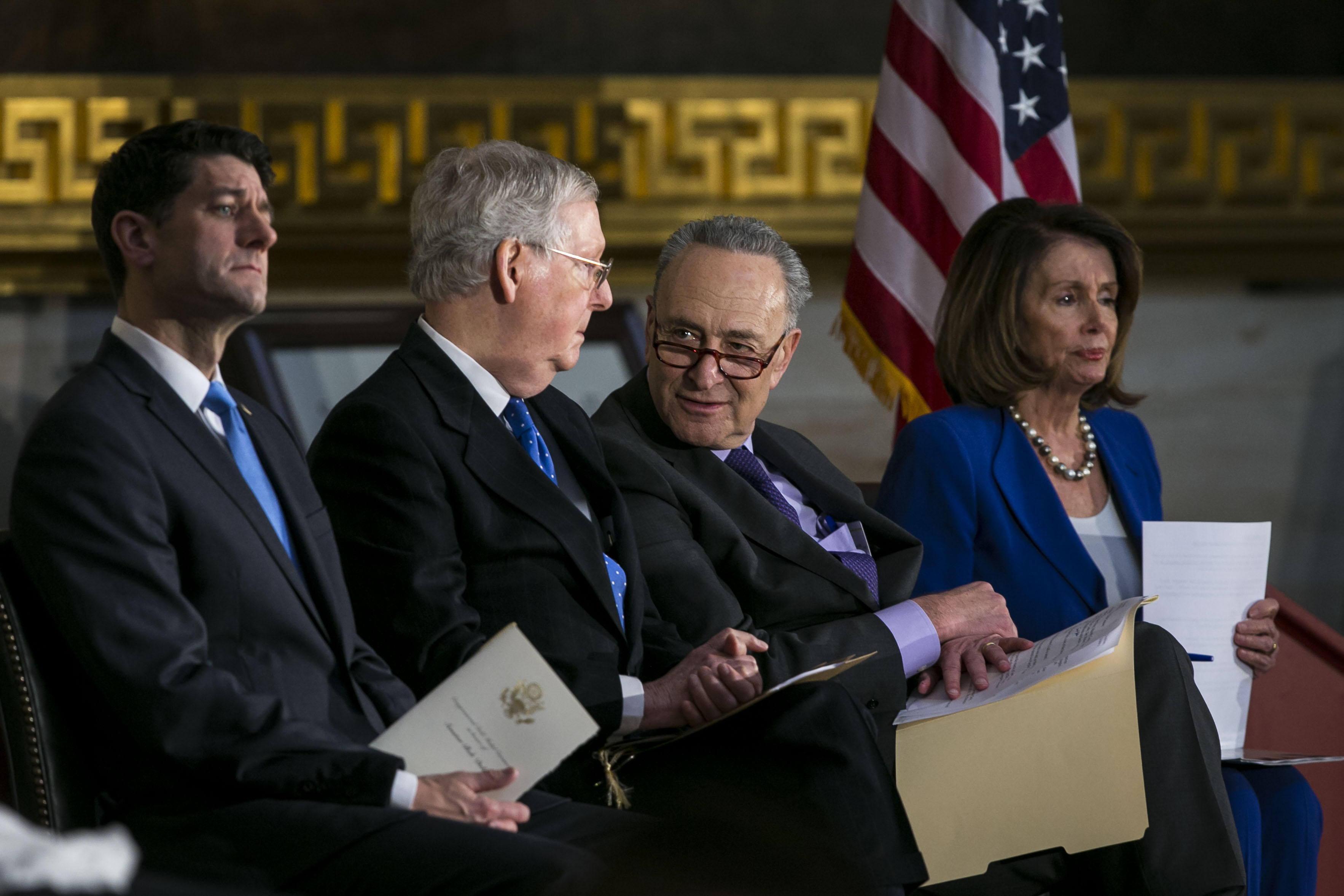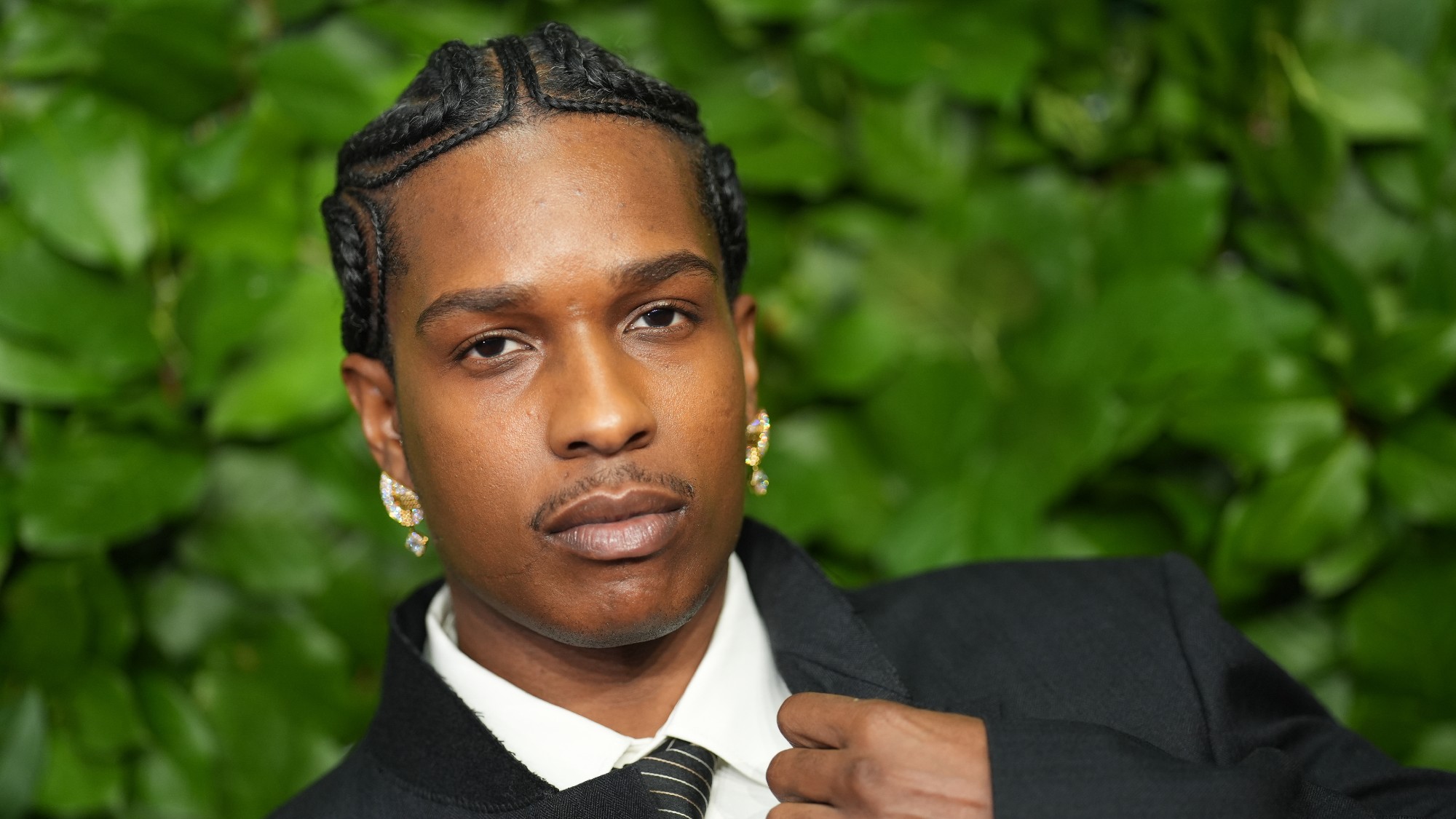Who should take the blame for a government shutdown?
A shutdown is looming, and everyone's ready to point the finger


A free daily email with the biggest news stories of the day – and the best features from TheWeek.com
You are now subscribed
Your newsletter sign-up was successful
The federal government is on the verge of a partial shutdown for the first time since 2013, and Democrats and Republicans have been trying to set the other party up to take the blame all week. The 850,000 federal workers who would be furloughed without pay might be wondering what they'll do without a paycheck, but in Congress and the White House the question that remains is the one posed by The Washington Post: "Who will win in the court of public opinion?"
The early polls are mixed — a new Quinnipiac poll says 34 percent of the public would blame Democrats, 32 percent would blame Republicans, and 21 percent would blame Trump. Other polls have been slightly more favorable for the Democrats. So, who should take the blame?
Congressional Republicans
The Week
Escape your echo chamber. Get the facts behind the news, plus analysis from multiple perspectives.

Sign up for The Week's Free Newsletters
From our morning news briefing to a weekly Good News Newsletter, get the best of The Week delivered directly to your inbox.
From our morning news briefing to a weekly Good News Newsletter, get the best of The Week delivered directly to your inbox.
Republicans control both houses of Congress, and while House Speaker Paul Ryan (R-Wis.) was able to muscle through a stopgap spending bill, it doesn't appear Senate Majority Leader Mitch McConnell has even 50 votes much less the 60 he needs to pass it. This is the fourth continuing resolution, and GOP appropriators put off spending bills to work on their unsuccessful ObamaCare repeal and successful tax cut. This impasse has raised serious "questions about the GOP's capacity — one year into the Trump administration — to govern," says The Washington Post. As Sen. Dean Heller (R-Nev.) said last August, "there will be no excuses and nobody else's fault but the Republican Party if this government does shut down."
Congressional Democrats
Democrats are refusing to support this fourth stopgap measure mostly to force a resolution for DREAMers, or young immigrants brought to the U.S. illegally when they were children. In a CBS News poll on Thursday, 90 percent of respondents back allowing DREAMers to stay in the U.S., but only 46 percent of those respondents think it's worth shutting down the government to protect them. Democrats don't oppose most of the other measures in the stopgap bill and enthusiastically support the six-year extension of the Children's Health Insurance Program (CHIP). CNN's Erin Burnett dug up a 2013 clip of Senate Minority Leader Chuck Schumer (D-N.Y.) saying Democrats shutting down the government over immigration would be "governmental chaos."

President Trump
A free daily email with the biggest news stories of the day – and the best features from TheWeek.com
The DREAMers issue has come to a head because Trump cancelled DACA, the program that protected them, last fall. He has also torpedoed bipartisan legislation to resolve the issue. "Unlike almost any president or administration before him, Trump has fanned the flames of a shutdown," The Washington Post says, and Trump's "evolving demands" on immigration "have created a moving target for Republicans, as they try to force concessions from Democrats." Or, you can just listen to Trump in 2013, as dragged up by Morning Joe on Friday, when he told Fox & Friends that the president always takes the blame for government shutdowns.
Realistically, unless it drags on, few voters will remember the shutdown by November. But for now, Sen. Susan Collins (R-Maine) is probably right: "I think this is a big loser for both sides, I really do."
Peter has worked as a news and culture writer and editor at The Week since the site's launch in 2008. He covers politics, world affairs, religion and cultural currents. His journalism career began as a copy editor at a financial newswire and has included editorial positions at The New York Times Magazine, Facts on File, and Oregon State University.
-
 Magazine solutions - February 13, 2026
Magazine solutions - February 13, 2026Puzzle and Quizzes Magazine solutions - February 13, 2026
-
 The pros and cons of tapping your 401(k) for a down payment
The pros and cons of tapping your 401(k) for a down paymentpros and cons Does it make good financial sense to raid your retirement for a home purchase?
-
 Music reviews: Ari Lennox, Lucinda Williams, and A$AP Rocky
Music reviews: Ari Lennox, Lucinda Williams, and A$AP RockyFeature ‘Vacancy,’ ‘World’s Gone Wrong,’ and ‘Don’t Be Dumb’
-
 The billionaires’ wealth tax: a catastrophe for California?
The billionaires’ wealth tax: a catastrophe for California?Talking Point Peter Thiel and Larry Page preparing to change state residency
-
 Bari Weiss’ ‘60 Minutes’ scandal is about more than one report
Bari Weiss’ ‘60 Minutes’ scandal is about more than one reportIN THE SPOTLIGHT By blocking an approved segment on a controversial prison holding US deportees in El Salvador, the editor-in-chief of CBS News has become the main story
-
 Has Zohran Mamdani shown the Democrats how to win again?
Has Zohran Mamdani shown the Democrats how to win again?Today’s Big Question New York City mayoral election touted as victory for left-wing populists but moderate centrist wins elsewhere present more complex path for Democratic Party
-
 Millions turn out for anti-Trump ‘No Kings’ rallies
Millions turn out for anti-Trump ‘No Kings’ ralliesSpeed Read An estimated 7 million people participated, 2 million more than at the first ‘No Kings’ protest in June
-
 Ghislaine Maxwell: angling for a Trump pardon
Ghislaine Maxwell: angling for a Trump pardonTalking Point Convicted sex trafficker's testimony could shed new light on president's links to Jeffrey Epstein
-
 The last words and final moments of 40 presidents
The last words and final moments of 40 presidentsThe Explainer Some are eloquent quotes worthy of the holders of the highest office in the nation, and others... aren't
-
 The JFK files: the truth at last?
The JFK files: the truth at last?In The Spotlight More than 64,000 previously classified documents relating the 1963 assassination of John F. Kennedy have been released by the Trump administration
-
 'Seriously, not literally': how should the world take Donald Trump?
'Seriously, not literally': how should the world take Donald Trump?Today's big question White House rhetoric and reality look likely to become increasingly blurred
